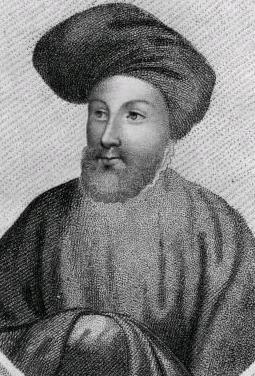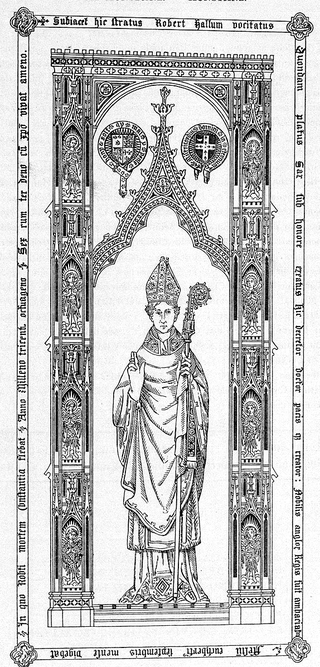Related Research Articles

William Juxon was an English churchman, Bishop of London from 1633 to 1646 and Archbishop of Canterbury from 1660 until his death.

Edward, 2nd Duke of York, was an English nobleman, military commander and magnate. He was the eldest son of Edmund of Langley, 1st Duke of York, and a grandson of King Edward III of England. He held significant appointments during the reigns of Richard II, Henry IV, and Henry V, and is also known for his translation of the hunting treatise The Master of Game. He was killed in 1415 at the Battle of Agincourt, whilst commanding the right wing of the English army.

Robert Hallam was an English churchman, Bishop of Salisbury and English representative at the Council of Constance. He was Chancellor of the University of Oxford from 1403 to 1405.
Richard Courtenay was an English prelate and university chancellor, who served as Bishop of Norwich from 1413 to 1415.
John Ashwardby was a follower of John Wycliffe.
Robert Rygge was an English medieval churchman, college fellow, and university Chancellor, and archdeacon of Barnstaple in Devon.
John Northwood was an English medieval churchman and university chancellor.
Richard Roderham was a medieval churchman and university Vice-Chancellor and Chancellor.
Robert Thwaits was an English medieval academic administrator.
Walter Trengof was an English medieval churchman and university Chancellor.
Robert Aylesham was an English medieval university vice-chancellor and chancellor.

John Turke was an English medieval college Fellow and university chancellor.
William de Hawkesworth was an English medieval college head and university chancellor.
Hugh de Willoughby was an English medieval theologian and university chancellor.
Walter Giffard was an English medieval theologist, university vice-chancellor, and university chancellor.
William de Bosco was an English medieval churchman, college fellow, and university chancellor.
Richard Benger was an English 16th-century university vice-chancellor,
Richard Duck D.D. was an English 16th-century college fellow and university vice-chancellor at the University of Oxford.
Richard Barnack was an English 16th-century vicar and vice-chancellor at the University of Oxford.
John Kynton was an English 16th-century Franciscan friar, divinity professor, and a vice-chancellor of the University of Oxford.
References
- ↑ Wood, Anthony (1790). "Fasti Oxonienses". The History and Antiquities of the Colleges and Halls in the University of Oxford. p. 37 – via Internet Archive.
- ↑ "Appendix 6: Vice-Chancellors of the University". The Encyclopaedia of Oxford . 1988. pp. 523–526.
- ↑ "Appendix 5: Chancellors of the University". The Encyclopaedia of Oxford . 1988. pp. 521–522.